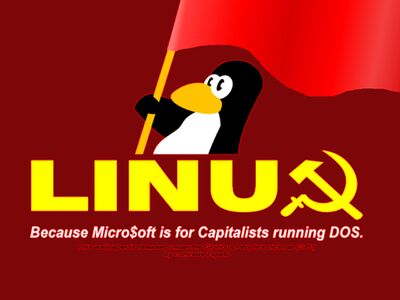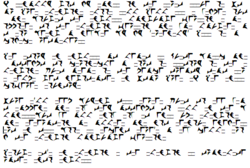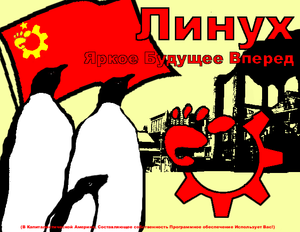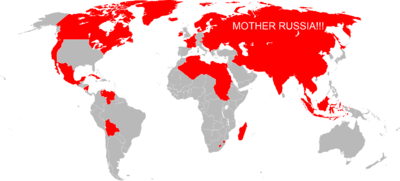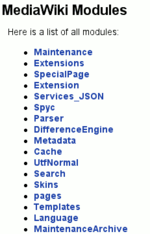Open source
/****************************************************************** Copywrong (C) 2009 EvilCo Inc. All rights denied. You may redistribute, copy, sell, republish, reproduce, or create derivative works of this product, provided you leave this copyright notice intact and you do not copy, sell, republish, reproduce, or create derivative works of this product without approval from the author. 1. You may publish this work, provided you read number 2 2. You may not publish this work, even though this license looks a lot like a highly permissive, non-copyleft license. 3. You must place boilerplate messages like this in all your source files, which is really inconvenient. YADAYADAYADA NO WARRANTY UNDERHELD ANY NOTWITHSTANDING YADAYADAYADA PROVISIONS HELD BY NONCONSPICUOUS BLAHBLAHBLAHBLAH COPYPASTE WHYARE YADAYADAYADA NO WARRANTY UNDERHELD ANY NOTWITHSTANDING YADAYADAYADA PROVISIONS HELD BY NONCONSPICUOUS BLAHBLAHBLAHBLAH YOUREADINGTHIS. ******************************************************************/
Open source is a school of discipline that focuses on developing programs without taking into consideration the perspective of an "average" user or clinging to the unnecessary burdens of proper implementation procedures.
Open Source programming, in a figurative sense, is a new and interesting way of reinventing the wheel, but all the while making sure that the new "wheel" will not be in any way compatible with existing roadworks or, at the very least, spin.
In other words, "open source" is the channel through which aspiring programmers convey their visions about life in general.
It means "free" - "free" as in "freedom" - the "freedom" of performing every single task in the most awkward way imaginable, the "freedom" of jumping out of the window after spending 30 hours on trying to get an open source application to work, and, indeed, the "freedom" of ultimately moving back to the Stone Age for good.
What is more, it means that all human beings should cease earning incomes and having families and start living in their moms' basements, wearing ugly red hats and talking about Python and sci-fi's all the time for the rest of their lives.
Not Actually Free[edit]
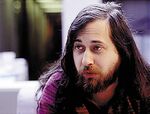
The original "open source" is the final stage of Nirvana that even Buddha himself did not come to achieve. The orthodox Open Source doctrines limit programmers to live on only the rays of the sun and on krill sifted from the air exhaled by endangered Blue Whales. This requires a level of physical fitness and competence that most programmers do not possess.
In fact, most Open Source programmers around the world belong to a denomination of Open Source known as "GNU" that permits the earning of income and questionably close relations with corporate entities.
It is also found that the actual source of revenue for most Open Source developers is in fact based on showing up at companies who have embraced Open Source technologies and attempting to port their hopelessly locked database systems into the more reliable ones such as Oracle 11g, Microsoft Access and, in some cases, file cards.
Choice, Diversity and Pointless Divergences (CDPD)[edit]
"Choice, Diversity and Pointless Divergences" (CDPD), the driving forces behind all open source projects, can be summarised with the following statement by Dr Bill Circumflex of the University of Computing at Trunch, near Norwich:
"Most Open Source projects are started by extremely clever, slightly dysfunctional geniuses who have been forced to leave either IBM or Sun because of their 'issues'. This leads them to decide that the best way to improve on their unique, creative vision is to allow approximately twelve million nerds worldwide to pick their code to bits. Eventually, with all Open Source projects, one of the nerds will make a 'bid for power', at which point there will be a 'branch'. A branch is much the same as an improvement, except not. Just as one Open Source programmer, who is drunk on meths at a Star Trek Enterprise convention, states, 'Imagine Excel, but with a flight simulator in it.' That kind of wank is precisely what you can expect from an Open Source application. This is why 98% of all OS websites are flame war, and the other 2% is unintelligible."
The evangelists of Open Source are eager to point out how their web sites are far better than those of professional competitors. All Open Source web sites offer at least seventeen thousand different versions of the software they are providing, none of which is definitive.
One source states that "[c]hoice is imperative with OS apps. If PERL or GUI or XML or TFT is not your bag, you need to be able to actualise using SMEG or BOLAX."
The key to a successful open source system architecture is to ensure its complete murkiness in the software. From the moment open source code is deployed, someone who claims to know more about the code than its creator will create a "branch" of the original version and get the original website to publish it alongside the original so as to puzzle casual browsers into indifference.
It is vital, as an Open Source programmer, to feel superior to all other programmers and their users, and it is considered unnecessary to understand how a user would actually use a software product if it was ever to be developed.
Open source embraces scientific experimentation, or in other words, the focus of open source is more in the exploring of philosophical possibilities rather than industrial productivity. As of 2007, it is rumoured that there will be an extensive project by the Open Source Initiative on "whether one can get purple milk out of a purple cow", and there has been speculations that the realisation of such project will result in the development of 1000+ free software products including 500 Firefox plug-ins and 200 obscure Linux kernel extensions.
Design Principles[edit]
One of the core design principles of Open Source is the "Certainty of Uncertainty". This principle, developed by Professor Bob Furtfergnugen of the University of Temple Balls, Washington, states that "whatever great idea you may have had will be fucked up within five minutes of its appearance on the Internet by some geek from Wyoming".
This is the "Doctrine of Version 1.0.1-1", and it is what deters professional programmers from even glance at the cesspool that is the Open Source arena. Prof. Furtfergnugen is the author of many works on the subject, including ".NET: 101 Easy Ways to Drive away a Creepy Nerd Asking for a Date", "How to Exorcise a Linux Developer with Visual Basic" and "Embedded PulseAudio - a Miracle Cure for the Cell Phone-Addicted".
In abiding by Furtfergnugen's principle, all Open Source developers have to ensure that their system never quite works, and despite spending countless hours developing more and slightly better OS code, a good developer will always make sure that their product is unfinished, or flawed in some crucial manner.
Ridiculous insistence on text editors[edit]
Despite the fact that computers have become almost a billion times more powerful in the last fifteen years, devotees of Open Source programming seem to feel that they are better off with a lovely black text editing background.
One source simply states, "Why on earth would somebody want to drag a text box onto a screen and then specify the properties of that text box using a property editor, when they can experience the purity of typing forty or fifty lines of complete gibberish?" Most Open Source advocates feel that it is more "satisfying" if one has to spend hours doing something that could be done more or less instantaneously; that things that take longer to be done are inherently better. Open Source programmers even urge their users to remain celibate so as to stay focused on writing configuration files for applications such as Samba and OpenLDAP.
Documentations[edit]
As mentioned, it is essential for an Open Source programmer to feel superior over their users. Although all Open Source programmers are required to bicker again and again on how their commercial counterparts refuse to disclose hidden features in their software, there is a strict rule, at the same time, that they are to provide the users with little or utterly unreadable documentations for what they have developed.
If seriously, human-friendly documentations are to be produced at all, it will be strictly on the developers' side and the developers' side only. A good open source manual is one that an average user cannot understand, and to him/her, it should be as though a literary genius such as George W. Bush, David Beckham or Arnold Schwarzenegger had written it. To gain a better picture of this, simply consider Lindsay Lohan's comment at a press conference in 2004 on multi-threaded PHP applications on x86 workstations:
| “ | Wmeeeerrreeh... ? *barf* | ” |
Systems that nearly work[edit]
A cursory glance at the banking industry demonstrates the uptake of Open Source - none. Open source advocates, although have yet come into any consensus, generally believe that those at said industry are "n00bz0rz [sic]". Some analysts speculate, however, that on the day that one sees a cashpoint saying "Cash Withdrawal powered by GeekWareBlueHat v1.0.0.2.3", one will also expect to see Satan skating to work.


